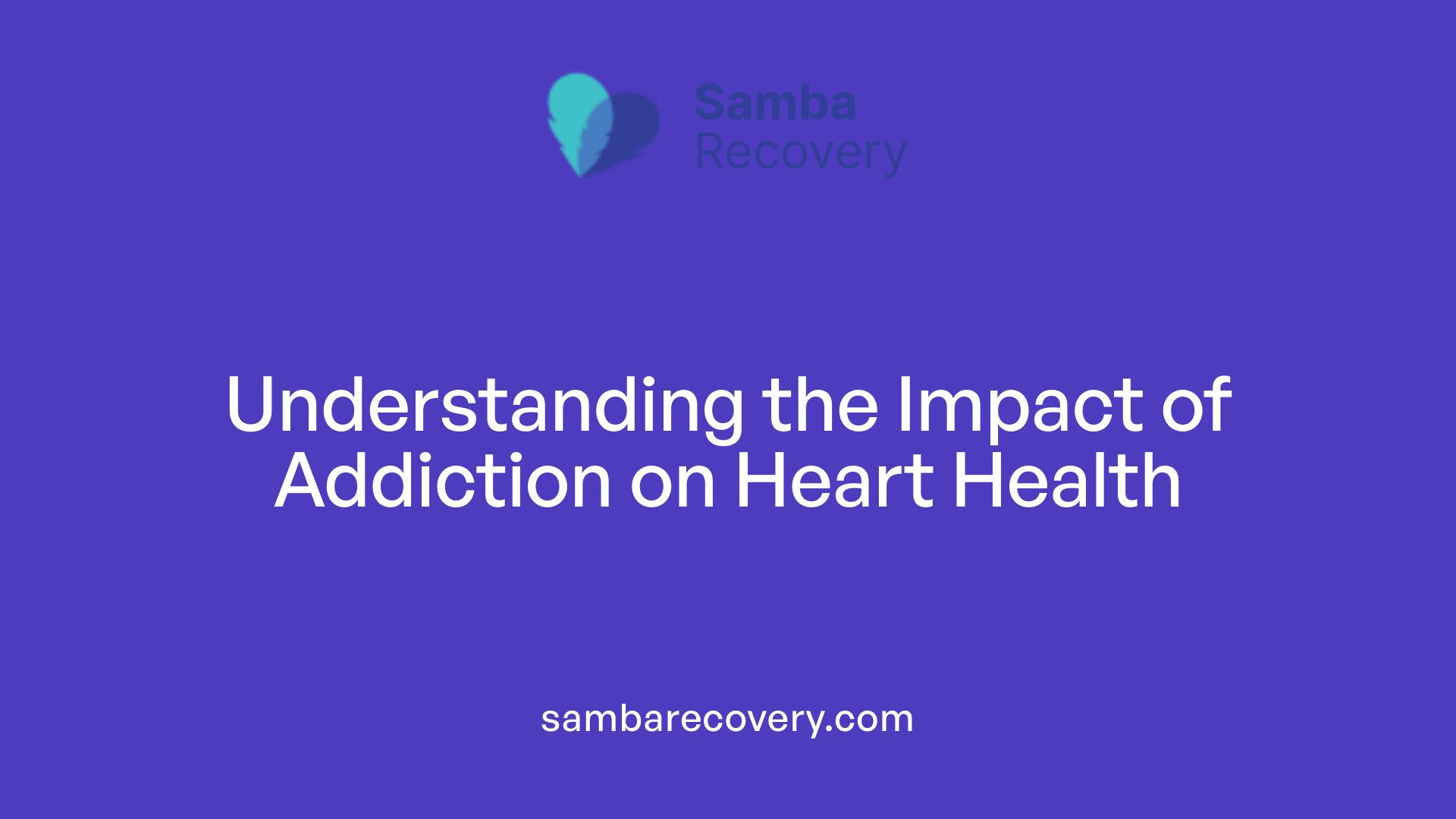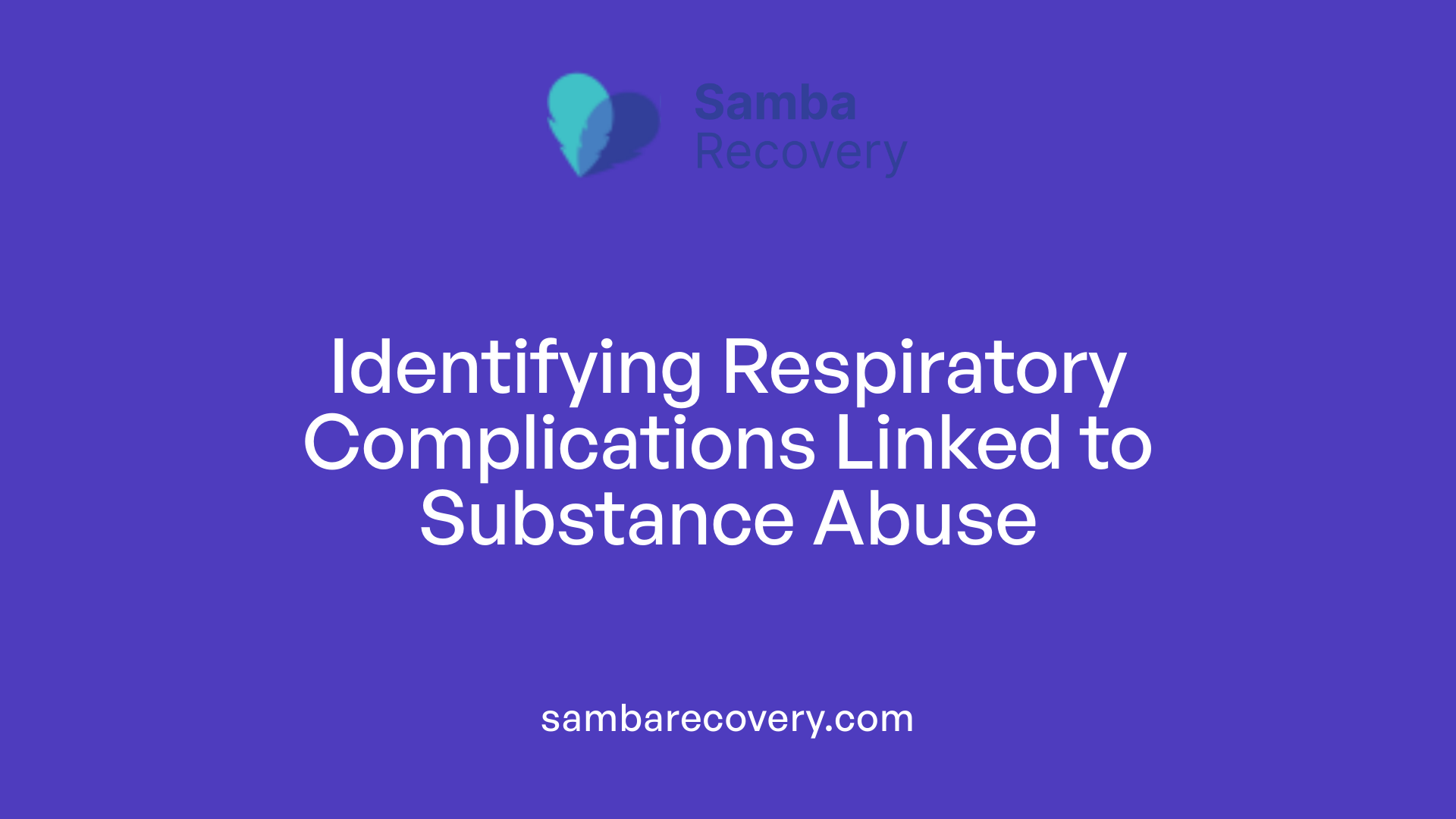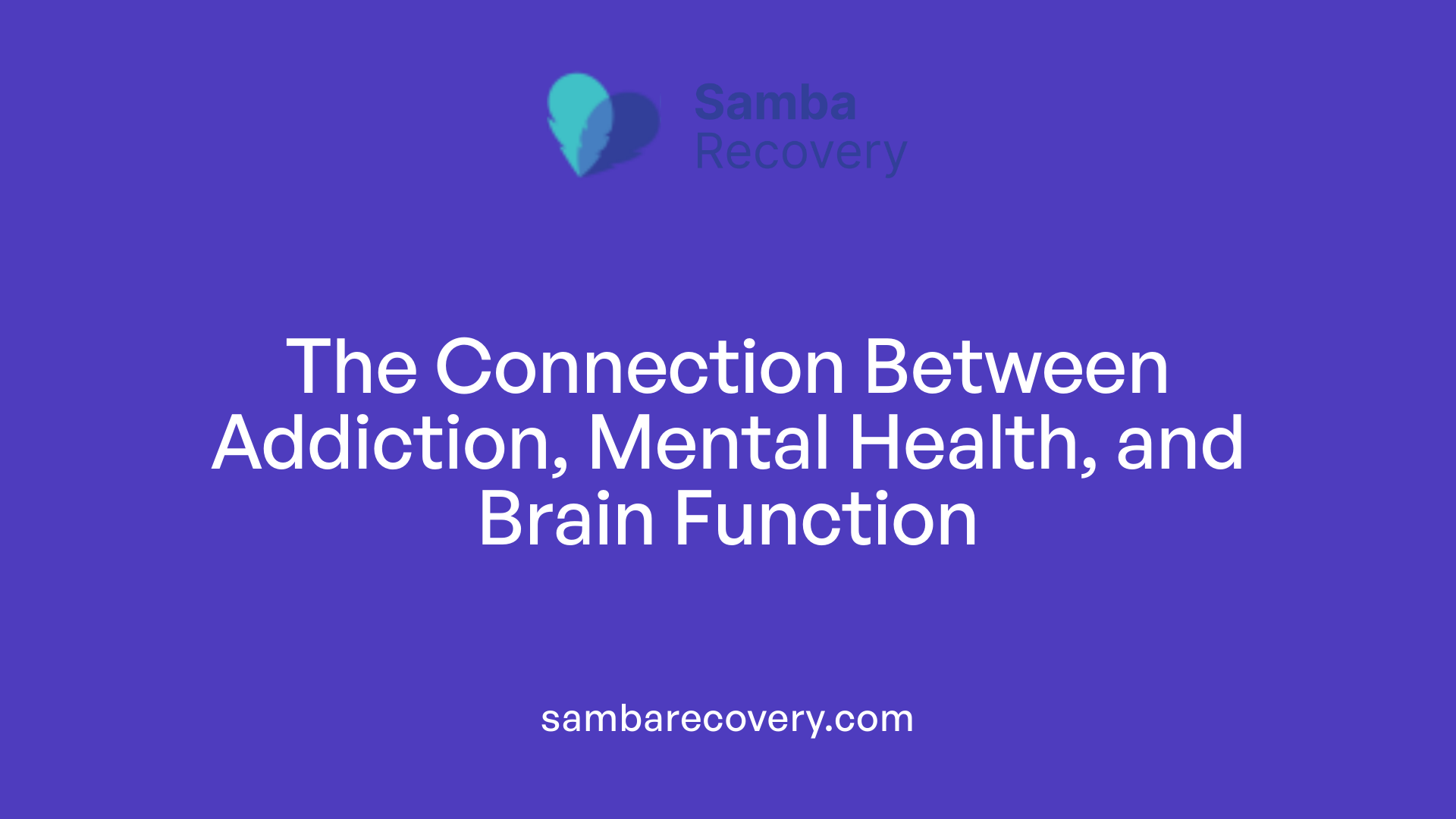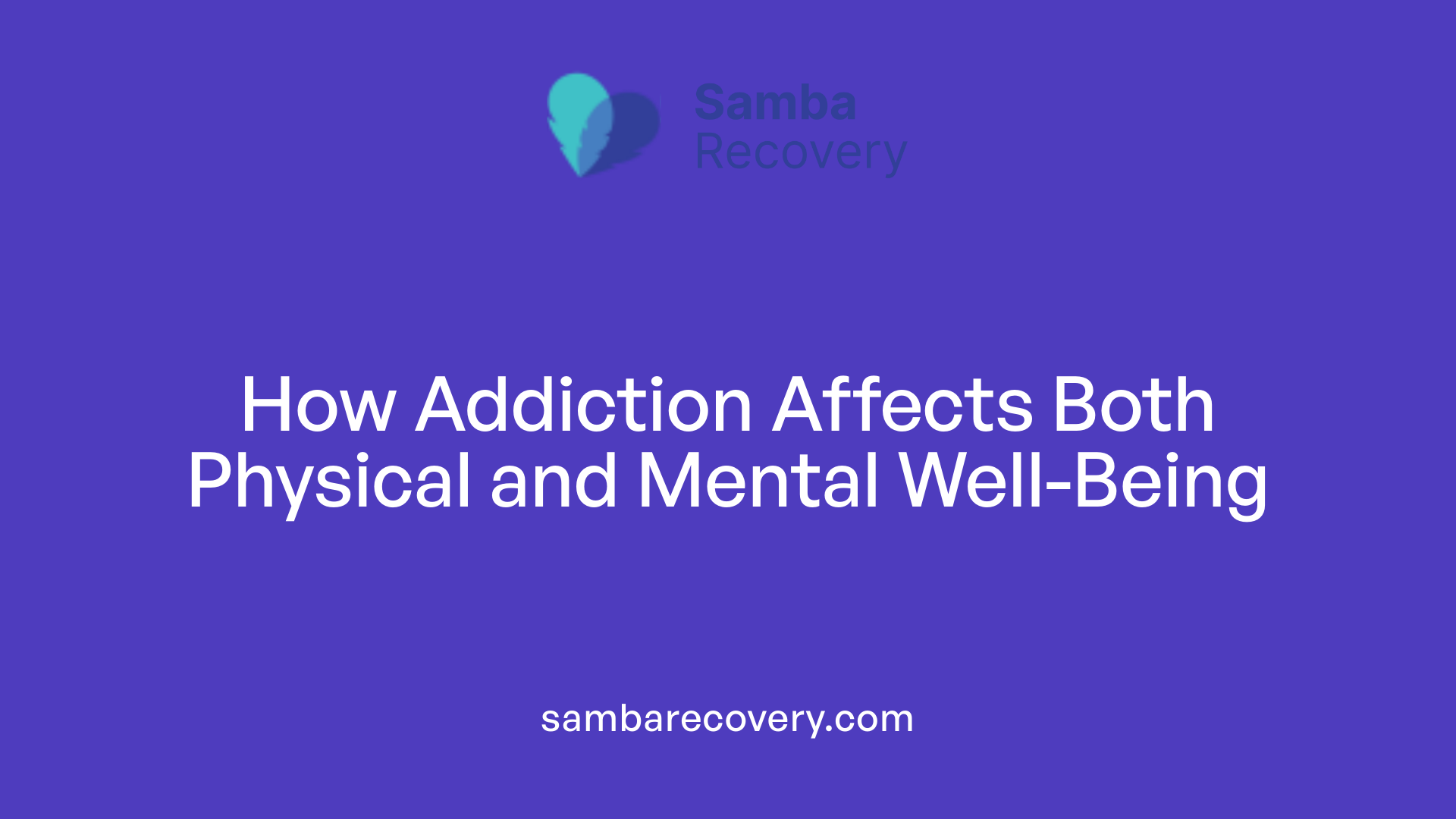Understanding the Physical Toll of Addiction
Addiction is more than a compulsion; it’s a chronic disorder that wreaks havoc on the body over time. Its far-reaching effects manifest in various forms, from organ damage to cognitive impairments, all of which significantly impact physical health. This narrative aims to explore the multi-faceted ways addiction undermines the human body’s integrity, delving into the specifics of how substances like alcohol, opioids, cocaine, marijuana, and tobacco disrupt organ systems and lead to grave health risks.
Heart and Cardiovascular Health Risks

How does addiction affect your physical health?
Addiction significantly impacts physical health by increasing the risk of life-threatening conditions such as lung disease, heart disease, cancer, and severe infections like HIV and hepatitis C.
Substance use, particularly stimulants like cocaine, elevates heart rate and blood pressure, leading to cardiovascular issues. Individuals who misuse drugs may experience:
- Abnormal heart rhythms
- Heart attacks
- Increased risk of stroke
- Collapsed veins due to injection practices
- Bacterial infections affecting the heart
Chronic alcohol use is particularly damaging, linked to liver disease, which can indirectly affect heart health. Alcoholism can lead to conditions like cardiomyopathy, contributing to heart failure and various cardiovascular issues.
Common cardiovascular issues from substances
| Substance | Cardiovascular Impact | Additional Health Concerns |
|---|---|---|
| Cocaine | Can cause heart attacks and rhythm disturbances | Increased heart rate and blood pressure |
| Alcohol | Linked to arrhythmias and cardiomyopathy | Liver disease exacerbating heart issues |
| Methamphetamine | Severe dental problems and increased risk of heart disease | Contributes to overall physical decline |
| Nicotine | Raises the risk of heart disease and respiratory issues | Long-term lung damage leading to COPD |
The overarching theme is that addiction not only exacerbates individual health risks but also creates a vicious cycle where deterioration in one area—like heart health—can lead to further complications in others. As addiction progresses, physical and mental health decline poses heightened risks of severe consequences, including premature mortality from cardiovascular events. Individuals in recovery may experience marked improvements in cardiovascular health, provided they receive proper care and support.
Liver Damage and Failures

Alcohol and Drug Impact on Liver Health
The liver is particularly vulnerable to the harmful effects of substance abuse. Chronic alcohol consumption is the leading cause of liver-related issues, contributing to 43% of liver disease deaths in 2019 alone. Long-term alcohol abuse can lead to conditions such as alcoholic steatosis, hepatitis, and cirrhosis. These conditions can result in severe complications, including liver failure, which may necessitate a transplant.
Drugs, particularly opioids, can also significantly damage the liver. They can lead to hepatic inflammation and necrosis, increasing the risk for long-term liver diseases. Injection drug users face heightened risks of infectious diseases like hepatitis B and C, which can further jeopardize liver health.
Reversibility of Liver Conditions
The reversibility of liver damage depends on several factors, including the extent of damage and the duration and type of substance use. Early-stage conditions, like fatty liver disease, may be reversible with lifestyle adjustments and cessation of alcohol or drug use. However, advanced liver diseases, such as cirrhosis or liver cancer, generally result in permanent damage and significantly reduce life expectancy.
In summary, while liver conditions may be reversible in their early stages, severe damage caused by sustained substance abuse can lead to critical health complications and irreversible consequences.
Respiratory Issues from Addiction

What are the five effects of drug abuse on physical health?
Drug abuse has numerous detrimental effects on physical health. Firstly, it can cause severe health problems, including organ damage, neurological impairments, and respiratory issues, which lead to long-term health consequences. Secondly, drug misuse can negatively impact the circulatory system, raising the risk of heart disease and fluctuating blood pressure. Thirdly, addiction can impair the nervous system, affecting mood regulation, coordination, and cognitive functions. Additionally, drug abuse may result in withdrawal symptoms and increased tolerance, which can compel individuals to consume larger amounts, exacerbating health risks. Lastly, it can lead to impulsive decision-making that further endangers a person’s well-being.
Effects of tobacco and other inhalants on lungs
The impact of substances like tobacco on the respiratory system is profound. Tobacco smoke can cause chronic bronchitis, emphysema, and lung cancer, highlighting its damaging effects on lung health. Moreover, substances like crack cocaine, when smoked, contribute to respiratory complications, leading to conditions such as chronic obstructive pulmonary disease (COPD). Methamphetamine, meanwhile, is known to cause severe dental issues but also adversely affects the lungs through methods of consumption that involve inhalation.
Long-term respiratory complications
Long-term use of inhalants can severely compromise respiratory function. Conditions such as chronic lung disease, pulmonary hypertension, and respiratory failure may develop, particularly in habitual users. Additionally, the compulsive need to seek out substances often leads to neglecting vital health screenings and treatments, further worsening respiratory health outcomes. As substance use continues, the likelihood of permanent lung damage increases, underscoring the importance of addressing addiction promptly.
| Substance | Respiratory Effects | Long-term Consequences |
|---|---|---|
| Tobacco | Chronic bronchitis, emphysema | Increased risk of lung cancer |
| Crack cocaine | Respiratory complications | Potential development of COPD |
| Methamphetamine | Lung damage from inhalation | Chronic respiratory issues |
| Opioids | Respiratory depression | Long-term respiratory failure |
| Marijuana | Breathing problems, airway irritations | Increased risk of lung infections |
Addiction and Cancer Risks
Carcinogenic Effects of Substances
Substance abuse significantly increases the risk of developing various types of cancer. For instance, tobacco use is a well-known risk factor for lung cancer and other malignancies, including mouth, throat, and bladder cancers. Chronic alcohol consumption also plays a critical role, contributing to the development of breast, liver, and esophageal cancers.
Additionally, prolonged use of drugs like methamphetamine has been linked to various health issues that can indirectly lead to cancer, such as severe dental problems and weakened immune systems. The carcinogenic properties of certain substances highlight the serious repercussions of addiction on overall health.
Statistics on Addiction-Related Cancers
Research indicates that individuals with substance use disorders have markedly increased risks of cancer compared to those without such issues. For example, heavy smokers show a 20 times greater risk of developing lung cancer, along with a significantly elevated risk of other types of cancers.
Moreover, excessive alcohol consumption was responsible for over 43% of liver disease deaths in 2019, illustrating the deadly nature of chronic alcohol use. As substance abuse continues, these cancer risks compound, often resulting in advanced disease at diagnosis, underscoring the dire need for early intervention and treatment.
Impact on Mental Health and Cognitive Function

How do drugs affect mental health?
Drugs can significantly impact mental health, leading to a spectrum of issues including anxiety, depression, and psychosis. For instance, regular cannabis use, especially in heavy amounts, has been linked to a heightened risk of developing mental health disorders. Stimulants, like cocaine and methamphetamine, can provoke paranoia and anxiety, potentially triggering severe psychotic episodes.
Individuals may turn to drugs as a form of self-medication, hoping to alleviate their mental health struggles. This behavior can create a damaging cycle: the relief that substances provide is often temporary, leading to a return of distress and further substance use. Overall, both chronic abuse and underlying mental health issues complicate treatment, necessitating integrated care approaches for the best outcomes.
Effects of addiction on brain function
Addiction fundamentally alters brain function, which can lead to cognitive impairments. Prolonged substance use disrupts neurotransmitter balance, affecting mood, decision-making, and impulse control. Areas such as the prefrontal cortex—which regulates self-control—may suffer decreased activity, resulting in poor decision-making and neglect of self-care.
Drugs can also induce lasting changes in brain structure, leading to deficits in memory and attention. Research indicates that certain substances might cause neuropsychological decline that persists even after cessation of use. This emphasizes that addiction has complex, long-term consequences for cognitive and emotional well-being, highlighting the need for comprehensive treatment strategies.
| Substance Type | Mental Health Effects | Cognitive Impacts |
|---|---|---|
| Cannabis | Increases anxiety and risk of psychosis | Potential memory loss |
| Stimulants | Causes paranoia and heightened anxiety | Impaired decision-making |
| Alcohol | Linked to depression and cognitive decline | Risk of dementia in severe cases |
| Opioids | Exacerbates mood disorders | Impaired cognitive functions |
Infectious Diseases Linked to Substance Use
Risks of HIV and Hepatitis C
Substance use significantly increases the risk of contracting infectious diseases, particularly HIV and hepatitis C. Individuals engaged in drug use, especially those who share needles or participate in risky sexual practices, are particularly vulnerable to these viruses. Sharing injection equipment can directly transmit bloodborne pathogens, while unsafe sexual behavior may expose individuals to sexually transmitted infections (STIs).
Injection Drug Use Risks
Injection drug use presents a multitude of health hazards, chief among them the increased likelihood of infectious diseases. For example, those who share needles are at a much higher risk of contracting not only HIV but also hepatitis B and C. These infections can have severe long-term effects, including liver damage, cirrhosis, and an increased risk of liver cancer if not properly managed. The prevalence of these diseases among substance users underscores the critical health implications of drug addiction and highlights the need for targeted prevention and intervention strategies.
Digestive System Complications
Gastrointestinal Issues Due to Addiction
Substance abuse often leads to a multitude of gastrointestinal complications. Opioid use, for instance, is notorious for causing severe constipation, and chronic alcohol consumption can result in ulcers and pancreatitis. These conditions can lead to significant discomfort and further health complications if left untreated. Over time, persistent inflammation and damage increase the risks for more serious conditions, including cancers of the digestive tract.
Nutrition and Absorption Problems
In addition to direct digestive health issues, addiction can disrupt nutritional intake and nutrient absorption. Many individuals with substance use disorders exhibit poor eating habits, leading to malnutrition and vitamin deficiencies. Alcohol and other drugs can impair gut function, hindering the body’s ability to absorb essential nutrients, exacerbating health problems. This combination of inadequate nutrition and digestive complications contributes to a decline in overall physical health, further complicating recovery.
| Health Issue | Substance Involved | Long-term Impact |
|---|---|---|
| Severe Constipation | Opioids | Intestinal blockages and discomfort |
| Ulcers | Alcohol | Risk of gastrointestinal bleeding |
| Pancreatitis | Alcohol | Long-term digestive issues and pain |
| Nutritional Deficiencies | Various substances | Fatigue, weakened immune system |
Dental Health Deterioration
Consequences of Drug Use on Dental Health
Substance abuse can significantly damage dental health, leading to a range of severe oral conditions. For instance, drugs like methamphetamine and cocaine can cause dry mouth, leading to an increase in dental decay and gum disease. Moreover, substance use often correlates with poor oral hygiene practices, worsening the situation.
The acidic nature of certain substances can erode tooth enamel and increase susceptibility to infections. Users may neglect regular dental visits, contributing further to the deterioration of their oral health.
Meth Mouth as a Case Study
A notable example is ‘meth mouth,’ which specifically refers to the severe dental problems associated with methamphetamine use. Users may experience rampant tooth decay, tooth loss, and severe gum disease. The combination of dry mouth, dietary choices, and neglect of personal hygiene creates an environment ripe for dental issues.
In summary, the toll of substance abuse extends to dental health, illustrating yet another critical aspect of the overall health decline associated with addiction.
The Influence of Environment on Addiction
How does the physical environment influence addiction?
A person’s physical environment significantly shapes their potential for addiction. Environments that offer easy access to drugs or alcohol, or where substance use is simply regarded as normal behavior, heighten the chances of developing addictive patterns. Factors such as socioeconomic status can also play a critical role. Areas with limited resources for recovery, high levels of violence, or persistent poverty can create stressors that contribute to substance use.
Moreover, social networks deeply impact addiction tendencies. If a person is surrounded by others who engage in substance use, the pressure to conform can drive them toward risky behaviors. Conversely, having a supportive and healthy environment can serve as a buffer, decreasing the likelihood of addiction.
A combination of these environmental influences, from accessibility to social dynamics, underscores the complex nature of addiction. Recognizing the impact of these external factors is crucial for creating effective prevention strategies.
Preventative community measures
Communities can adopt preventative measures to combat addiction by providing education about substance use, promoting healthy social activities, and ensuring access to mental health resources. Initiatives that foster strong, supportive networks can also help mitigate the risk of addiction. Programs aimed at reducing availability of drugs and alcohol, alongside activities that engage youth in positive ways, develop resilience against the pressures that lead to substance abuse. Engaging community members in such programs can empower individuals and help create environments conducive to recovery, thereby enhancing their well-being.
Managing the Reversible and Irreversible Effects
Potential for recovery and repair
The journey to recovery from addiction often leads to notable health improvements, although some irreversible effects may linger. Many individuals experience significant physical health benefits post-recovery, including better cardiovascular health, improved lung function, and stabilization of mental health symptoms. The body has remarkable healing capabilities; for example, liver function may improve after abstaining from alcohol, and lung conditions can stabilize after quitting smoking.
Moreover, nutritional rehabilitation plays a key role in recovery. By focusing on a balanced diet rich in vitamins and minerals, individuals can address malnutrition and its consequences, aiding recovery of both physical and mental health. Exercise can also significantly enhance overall well-being by improving cardiovascular fitness and even mitigating some cognitive deficits.
Interventions and medical help
Medical interventions are crucial in managing both the reversible and irreversible effects of addiction. Access to healthcare, including counseling and medication-assisted treatment (MAT), can support individuals on their healing journeys. Therapies aimed at addressing co-occurring mental health disorders can further enhance outcomes, helping individuals rebuild their lives.
In some cases, ongoing medical support is necessary, especially for chronic conditions such as liver disease or respiratory problems resulting from long-term substance abuse. Regular health screenings and comprehensive care provide individuals with the resources they need to manage their health and prevent additional complications. Recovery from addiction is often a complex process, but with the right interventions and support, individuals can regain control over their health and lives.
Impact of Addiction on Physical Performance
How does substance abuse affect physical performance?
Substance abuse significantly impairs physical performance by compromising coordination, judgment, and overall athletic abilities. Athletes who use drugs are more likely to miss crucial plays. For instance, a basketball player may fail to make important free throws, while a football player might be unable to outrun defenders.
Additionally, drug use leads to serious long-term consequences, including an increased risk of injury, ongoing addiction, and potential legal issues. These factors can completely derail an athlete’s career.
Team Dynamics and Substance Abuse
The negative impact of drug use extends beyond individual athletes. It can disrupt team morale and cohesiveness, causing a decrease in energy and trust among teammates. This erodes the support systems essential for both personal growth and athletic success.
Overall, substance abuse undermines an athlete’s sense of responsibility both in and out of sports, limiting their ability to develop vital life skills that can carry into other aspects of life.
Interconnections Between Physical and Mental Health

What are the unwanted physical and mental effects caused by drugs?
Drugs can lead to a range of unwanted physical effects that significantly impact health. These include changes in heart rate and blood pressure, respiratory issues, nausea, vomiting, weight loss, and gastrointestinal problems such as ulcers and pancreatitis. Specific drugs have different effects; for example, stimulants like cocaine can elevate heart rates and blood pressure, increasing the risk of heart attacks and strokes. Furthermore, substances like opioids can cause severe respiratory depression, posing life-threatening risks.
On the mental health front, substances often cause confusion, emotional instability, and psychosis. Users might experience hallucinations, paranoia, and intensified anxiety or irritability, particularly during withdrawal. Substance use can lead to long-term cognitive deficits, including memory loss and impaired decision-making abilities.
Moreover, the impact of addiction extends to relationships. Behavioral changes driven by substance use can deteriorate connections with family and friends, creating isolation and emotional distress. The potential for infectious diseases increases, especially through harmful practices like needle sharing, further intertwining physical and mental health challenges.
Dual diagnosis challenges
Addiction often coexists with mental health disorders, a situation known as dual diagnosis. Individuals with anxiety or depression might use substances as a coping mechanism, which can exacerbate their conditions. Effective treatment for such co-occurring disorders is essential; however, it can be complex. Traditional therapies for addiction may overlook underlying mental health issues, leading to relapse or incomplete recovery.
Treatment approaches for co-occurring disorders
Addressing dual diagnosis requires comprehensive treatment strategies that focus on both substance use and mental health simultaneously. Integrated therapies involving medication management, individual and group counseling, and lifestyle changes can provide patients with the necessary tools to tackle both challenges. Support from healthcare professionals specializing in both addiction and mental health can enhance the likelihood of sustained recovery, ultimately leading to better overall health outcomes.
Pathways to Healthier Outcomes
Addiction’s toll on physical health is profound and wide-ranging, yet understanding these impacts can empower individuals and communities to seek recovery and preventative measures. With timely intervention and a supportive environment, the path to reversing some of the damage inflicted by addiction is possible. Increased awareness and education pave the way for healthier lifestyles, ensuring that individuals can reclaim control over their bodies and minds.
References
- Addiction and Health | National Institute on Drug Abuse (NIDA)
- Physical & Mental Effects of Drug Abuse – Gateway Foundation
- Physical and mental effects of drug abuse — Medical News Today
- Physical Effects of Drug Abuse – Greenhouse Treatment Center
- Substance use disorders linked to poor health outcomes in wide …
- The Effects of Substance Abuse on Your Physical Health
- Biology of Addiction | NIH News in Health






